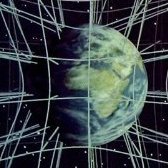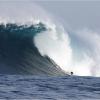All Activity
- Past hour
-
Markus Hanke started following When did spacetime form?
-
This got me thinking - setting aside singularities for the moment, are there (in a purely mathematical sense) metrics that are not valid solutions to the EFE? IOW, could one write down a metric for which the equations cannot be worked backwards to obtain a corresponding energy-momentum tensor, given we are on a semi-Riemannian manifold? Again, I’m talking purely mathematically, never mind physical realisability. I suspect the answer is no.
- Today
-
The magician Penn Gillette did 2 tours on duty on the Apprentice. According to him, Trump would ramble aimlessly for 2 hours, and the producers edited it down to about 3 minutes that made sense. The following interview is 4 years old and sounds prophetic. "With some sort of mental problems, with greed, and a lack of compassion, he was able to "throw off filters...." "There is interesting stuff there, yes he is crazy, venal, empty, really weird stuff that you've never seen before. You have never seen someone who has never laughed sincerely, and never made a joke. He only laughs in a "bully way." "I've never seen someone with no enjoyment or understanding of music."
- Yesterday
-

Bias in science (split from Evolution of religiosity)
Luc Turpin replied to Luc Turpin's topic in Other Sciences
I suspected that this was the case. -
This is the smaller factor of: RSA-2048 = 2519590847565789349402718324004839857142928212620403202777713783604366202070 7595556264018525880784406918290641249515082189298559149176184502808489120072 8449926873928072877767359714183472702618963750149718246911650776133798590957 0009733045974880842840179742910064245869181719511874612151517265463228221686 9987549182422433637259085141865462043576798423387184774447920739934236584823 8242811981638150106748104516603773060562016196762561338441436038339044149526 3443219011465754445417842402092461651572335077870774981712577246796292638635 6373289912154831438167899885040445364023527381951378636564391212010397122822 120720357 Verify
-

Bias in science (split from Evolution of religiosity)
MSC replied to Luc Turpin's topic in Other Sciences
Just a tiny nit pick; You are however qualified to make objective statements about your person as an object and there can be an objective medical basis for such a statement. You also have the go to inquiry for an external check on your perception of heat by asking "Is it hot in here or is it just me?". This is that context dependency stuff I talked about in a different discussion mixed with an interpretation of applied logic I came across in R Cohens Preface to logic. He was pointing out that a physicist, An MD and a psychologist could all be witness to a person jumping off a building and be observing different datasets in the same situation and arriving at different facts about the situation all while still being objective and utilising logic in the same way. Sorry I said tiny nit pick and went off on a tangent. Because Mordred is foccused on hard sciences where there is far more consensus and most of the debates that rage there are about what new data in the future will say and less about what old data says. Meanwhile I'm more engaged with the social sciences where not only biases but agendas influence the fields greatly, especially in psychology. Why do I want to read that so bad?! Probably wouldn't understand much but I'm curious. Anyway will shoot you a message. -

Bias in science (split from Evolution of religiosity)
Mordred replied to Luc Turpin's topic in Other Sciences
Lets try this tact. One can get a research grant or other sources of funding. Say the grant is to validate the Earth is flat. (This actually happened to a flat Earth society). They performed a test. They went into the test with full bias. The Earth is flat and I'm going to prove it attitude. To their utter disappointment the test showed the Earth was round. I will give them credit though. They honestly announced their findings. When I wrote that dissertation I believed strongly in my theory. So I likely had a bias based on how strongly I believed in it. Yet like that flat Earth society. I accepted the findings as being valid enough to counter my previous belief in my theory. -

Bias in science (split from Evolution of religiosity)
Luc Turpin replied to Luc Turpin's topic in Other Sciences
When I read msc,I see bias all over science and when I read yours i see no bias at play; I am now totally confused 1- got it and yes, the only issue is biased people 2-yes, looking at the right places and asking the right questions -

Bias in science (split from Evolution of religiosity)
Mordred replied to Luc Turpin's topic in Other Sciences
You can but keep in mind that dissertation was back in the late 80's lol and publishing requirements will vary depending on the publisher. Swansont for example has a peer reviewed paper on arxiv. I studied it a few years back. -

Bias in science (split from Evolution of religiosity)
swansont replied to Luc Turpin's topic in Other Sciences
Sure. You could find out what conditions feel hot and correlate it with many factors (age, sex, weight, climate they are acclimated to) but what you can’t do is objectively say that it is hot because you feel hot. Without details, I can’t comment on what that would tell you, other than some people have that experience. Same as above. The issue with mystical experiences is the attribution of the cause, not that some people have such an experience. But I can subject anyone to a temperature of 25C, while one generally can’t induce a mystical experience. By not being specific you’re potentially mixing scientific and non-scientific effects. This is just as bad as your extrapolation from a specific to general behavior. QM is based on probability so outcomes sometimes happen and sometimes not, but the math means you can predict outcomes with precision. -
Yes. Scale can dilute our delusions. It shouldn't should it? Einstein seems to have been of the same opinion. I find it very difficult to disagree with that. The most likely candidate to smooth things out is, of course, quantum mechanics. And Genady is very hard to win over, probably because he lives on an island.
-

Bias in science (split from Evolution of religiosity)
MSC replied to Luc Turpin's topic in Other Sciences
No; it represents institutional bias and I want you to think very carefully what I mean by an institution; we are talking adminstrators, support staff, managers, investors, researchers and it even includes cultural and familial biases of all of those individuals. The scientific method is all about reducing bias, human bias and human bias is indeed the only real issue here. A puzzle to be solved by looking in the right places and asking the right questions. I envy your journey of discovery. This is the part where I normally go full salesman on contextualism and contextual studies but I think they keywords will suffice. Unrelated but can I privately pick your brain about a few things related to paper publishing? Like I said; It's either a system of checks and balances on an ecosystem of thought or one big confusing mess. Aka, people. -

Bias in science (split from Evolution of religiosity)
Mordred replied to Luc Turpin's topic in Other Sciences
Ok let's do a personal experienced example. I once wrote a dissertation paper using quintessence for inflation. At that time period there were dozens of quintessence inflationary models kicking around. The two most popular classes of inflationary models were Chaotic eternal inflation and quintessence. (Everyone believed in one or the other). My disseration at that time was a good match to COBE findings. Then WMAP took measurement of the CMB and with its findings my dissertation instantly became null and void as the equations state I had could not be fixed to account for the required E-folds. Theory done proven incorrect with one dataset. Later confirmed by other datasets. All it takes is 1 reasobably conclusive test to invalid a given theory. That's the process. It doesn't matter how strongly myself or others believe in a theory. Tests and evidence can trump any theory if it doesn't match up to observational and experimental evidence. The last couple of years I have been researching Higgs inflation so far I know I can get write a paper on it that would match current observational evidence however if new evidence becomes available it could just as easily trump the theory I'm working on. -

Bias in science (split from Evolution of religiosity)
Luc Turpin replied to Luc Turpin's topic in Other Sciences
Lot’s to unpack in your post. I find the multiplicity of paradigms interesting. And I was aware of varying institutional bias, but did not dared to bring it up. Does this demonstrate even more bias in science? As for qualia, I also do not see the issue about interpretation between seekers, but where it comes from or how it is produced is enigmatic to me. -
Great question! The concept of gravity, as we understand it today, wasn't fully developed until Newton's work in the 17th century. While scales existed and people could measure weight, the underlying principle connecting these observations to a universal force wasn't clear. Newton's genius was in formulating a comprehensive theory that explained why objects fall and how the same force governs planetary motions. Before him, there was a lack of a cohesive framework to link these phenomena. That's a fascinating analogy! It's intriguing to think about how such simple observations, like an apple falling, led to groundbreaking scientific theories. Newton's curiosity about everyday phenomena indeed transformed our understanding of the universe. The comparison between scales and gravity effectively highlights the intuitive nature of these concepts. It’s a reminder of how much we can learn from observing and questioning the world around us. Thanks for sharing this thought-provoking perspective!
-

Bias in science (split from Evolution of religiosity)
MSC replied to Luc Turpin's topic in Other Sciences
Reread Mordreds comment and I'll provide an explanation of why it's relevant to your question here. @Luc Turpin When Mordred mentioned how verification by other independent examiners worked, he forgot to mention that what the "current paradigm" is can vary greatly not just between individuals but universities and other funders and enablers of research. When you say "current paradigm" my response is who's paradigm? Stanford? Oxford? You have debates raging in many fields about how to interpret facts and data, you have secular schools, religious schools, you have people who want to fund medicine and people who want to fund military research. Some people have telescopes and other sensors pointing at the sky to look at cosmological phenomena, look for aliens, to look for evidence of God etc. Human scientific motivation isn't limited to some secularist group telling everyone what is right and what is wrong. It's much more complex and for every idea or claim that is poopooed by one group, there is another group who will look into it with relish. It's either a lovely system of checks and balances on an entire ecosystem of scientific and philosophical thought or a great big confusing mess. I'd also add that in psychology and physiology you could look for an objective theory of explanation as to why two people might have a different experience of the same temperature and it could be something simple like one was just in a cold walk in fridge and the other was just in a greenhouse. Or one has autism and the other doesn't. The subjective stuff that gets me is the whole qualia debate. Should I care if green through your eyes doesn't look like green through my eyes when we can both still look at a green object and still both call it green? As far as I'm concerned that debate should only happen if you can prove two non colourblind people are having a different experience of the same colour. -

Bias in science (split from Evolution of religiosity)
Luc Turpin replied to Luc Turpin's topic in Other Sciences
In the sense that you describe it, objectivity may be well under threat. In my neck of the woods, it is not as threatened. A bit of humour not seriousness on my part in the use of the term crusade. -
Hi there! Your project on bioremediation of oil spills sounds fascinating! Bacillus Subtilis is indeed a great choice due to its high CFU count and effectiveness in degrading hydrocarbons. Besides compost and manure, you might also consider using mushroom mycelium, specifically oyster mushrooms, as they have shown promise in breaking down oil in contaminated soil. Additionally, adding a small amount of molasses can help feed the bacteria, boosting their activity. As for dissolving Bacillus in water, it’s generally effective, but make sure the water is free of chlorine or other disinfectants that could harm the bacteria. Introducing it to the oil-contaminated water in this way should allow the bacteria to start breaking down the oil. Good luck with your project, and feel free to ask more questions herez
-

Bias in science (split from Evolution of religiosity)
MSC replied to Luc Turpin's topic in Other Sciences
Humans retaining objectivity (or gaining, depending on how you look at it) is under threat as far as I'm concerned, or did we all miss TFG and all the political windbags yelling things like "fake news" or "alternative facts" for almost a decade? Objectivity in this instance equates to hard material truths about out world and universes state. So what exactly is wrong with asking people to defend truth? It's also clearly not equivalent to a crusade either because nobody is being threatened with death, by scientists, for not believing scientific facts or not actively seeking out further education. I'm pretty sure Dawkins means to defend the truth, by speaking it and teaching it. What's wrong with that? Why would that be a crusade? -

Bias in science (split from Evolution of religiosity)
Luc Turpin replied to Luc Turpin's topic in Other Sciences
Can we not ask 100 people how 25c feels like and then average out the results? how about a validated questionnaire for nde experiencers? How about documenting supposedly mystical experiences and see if there are patterns? science can explore the subjective through indirect evidencing Was the higg’s boson not confirmed through a five sigma significance on a distribution graph? Did the higg’s boson appear at every trial or was it an average of occurrences? My point is the ignoring of data because it does not fit with current paradigm I know of the principle of replicability. my question again is what if replicable data is ignored because it does not fit the current paradigm? -

Bias in science (split from Evolution of religiosity)
Mordred replied to Luc Turpin's topic in Other Sciences
Another good example of shoddy science is perpetual motion machines. You sometimes see papers that seem well written and have all the required details. However if the experiment cannot be reproduced by other independent examiners. You know something is fishy. If others perform the same experiment then the two experiments should match within reasonable approximation allowing for potential error margins. -

Bias in science (split from Evolution of religiosity)
TheVat replied to Luc Turpin's topic in Other Sciences
By fraudulent or shoddy science. It is important to understand that if I go to the trouble of gathering data in good faith then I am not going to ignore it. If others do the same experiment and it looks like they get really different data, then there will be intense peer review and scrutiny of our datasets and methods. A common fraud is someone getting data that doesn't support their favored hypothesis and so they massage the data to fit. Because very few scientists are the sole researchers in an area of inquiry, this kind of fraud has a way of being discovered. Someone reported that transcranial magnetic stimulus of the parietal lobe caused people to see God. Turned out to be bad interpretation of data and experimenter asking subjects leading questions and limiting the sample to religious people. Then others repeated the TCMS experiment with a better cross-section of population, more open and neutral questions as to what was felt, more longitudinal data (repeating experiment with a subject multiple times over a couple years) and so on. From those experiments it seemed the parietal lobe simply generated a sense of presence and then people filled in with details that, in their cultural context, made sense to them. Shoddy science and fraud, ignoring evidence, tends to reveal itself. -

Bias in science (split from Evolution of religiosity)
swansont replied to Luc Turpin's topic in Other Sciences
Science doesn’t do subjective reality. I can’t examine data that only you can see (i.e. a subjective experience) and you can’t have a law of nature that only works for some people. A rock either falls or it doesn’t. Atoms either form a compound or they don’t. You can have subjective experiences; 25 C might feel hot to you but not to someone else, but the temperature being 25 C is objectively true. You might not like that this is the case (subjective) but your preferences are not science. -

Bias in science (split from Evolution of religiosity)
Luc Turpin replied to Luc Turpin's topic in Other Sciences
1- when did I say that science was not great and not beneficial to humanity. The contrary, i am all for science. What I am saying is that there is a part missing if one wishes to fully grasp reality, and what is hampering this quest for a fuller reality is partly bias. 2- hope that this time it will push aside the prevailing computer model of brain. Allow me to be a bit doubtful on though. So far, it has made very limited in ground on the neuroscience community 3- the process is brutally hard on bias. The weakness lies with scientists and the scientific community. Again, science is very good at exploring and understanding the objective part of reality. That is why we have such great technology. That is why covid did not wreak more havoc onto the world. How many times do I have to state that science is great at what it does. If it can find a way of exploring the subjective part of reality or at least respecting what others are saying about it, then we are in business toward a greater understanding of reality Yes, but sometimes is it possible that the evidence is just ignored? -

Bias in science (split from Evolution of religiosity)
Mordred replied to Luc Turpin's topic in Other Sciences
That I would agree with. Regardless of the science if the science doesn't match evidence. Then the theory gets changed to account or gets dropped. -

Bias in science (split from Evolution of religiosity)
Luc Turpin replied to Luc Turpin's topic in Other Sciences
Why the -1 ? Need time to gather what everyone is clamouring for, and stoping this discussion from going around in circle. As a matter of statement, I might be the only one thinking that this conversation is actually not going in circle as I have learned in the process, it was established that people not process was at the origin of bias and that some of you have been initiated to the concept of worldview having a probable impact on science. I long route that we have walked together. People not process is at the origin of bias, I think.





